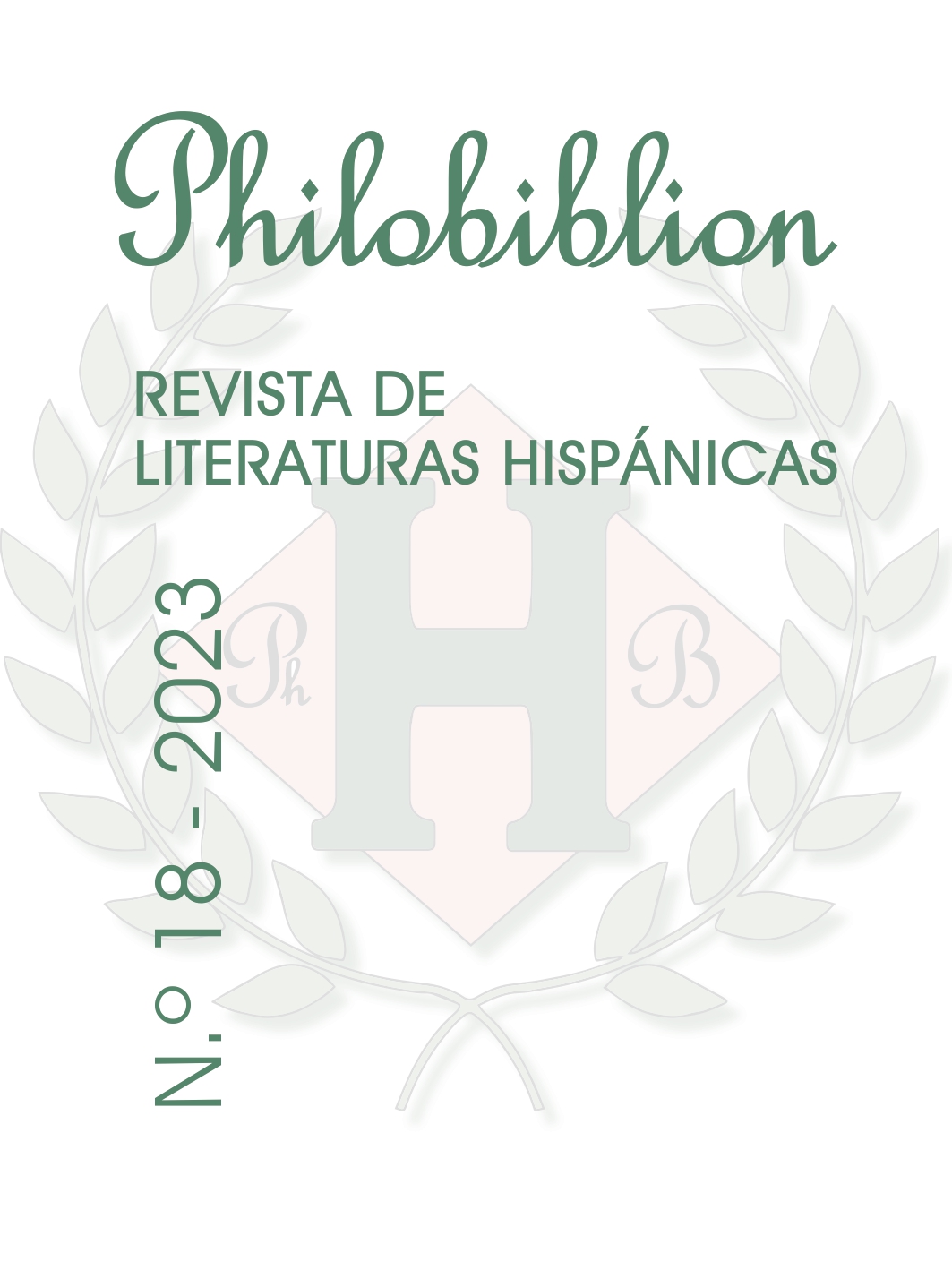The theme of the multiverse in the film Everything Everywhere All at Once (2022) and Borges' "The Aleph": a comparative study
Keywords:
The Aleph, Everything Everywhere All at Once, the multiverse, the infinite, chaotic enumerationAbstract
The film Everything Everywhere All at Once (2022) has captured the attention of audiences and critics alike with its dazzling stylistic complexity. Its central theme, the multiverse, as well as its narrative style are reminiscent of a famous short story by Jorge Luis Borges, "The Aleph", published in the volume of the same title in 1949. This paper will compare these two works in terms of their thematic, structural and narratological aspects, attempting to establish a relationship on these planes and to explore how the infinity of the multiverse is reproduced. The study concludes that the film and the short story are very similar in structure and theme, but both use different techniques of expression to achieve the effect of chaotic enumeration.
Downloads
References
AGUIRRE, Anthony (2023), «Multiverse», en Encyclopedia Britannica, 5 de septiembre. Disponible en: https://www.britannica.com/science/multiverse (Consulta: 18-9-2023).
BALDERSTON, Daniel. (2012). «The Universe in a Nutshell: The Long Sentence in Borges’s “El Aleph”», en Variaciones Borges, 33, págs. 53-72.
BORGES, Jorge Luis (1949), El Aleph, Buenos Aires, Editorial Losada.
CONSOLI, Ben. (2022), Everything Everywhere All At Once Cinematography (with Larkin Seiple) [Podcast de audio], 19 de julio. Disponible en: https://gocreativeshow.com/everything-everywhere-all-at-once-cinematography-with-larkin-seiple/ (Consulta: 15-6-2023).
GEISINGER, Gabriella (2022). «Everything Everywhere All At Once directors explain the vital significance of laundry». Digital Spy, 7 de mayo. Disponible en: https://www.digitalspy.com/movies/a39914624/every thing-everywhere-all-at-once-directors-interview-daniels/ (Consulta: 5-6-2023).
HSU, Stephanie (2022), «Directors Daniel Kwan & Daniel Scheinert on Everything Everywhere All At Once» [Video], 8 de diciembre. Disponible en: https://www.youtube.com/watch?v=CLnm2trGjMM&ab_channel=HammerMuseum (Consulta: 1-6-2022).
KWAN, Daniel y SCHEINERT, Daniel. (Dirs.) (2022), Everything Everywhere All at Once [film], Joe Russo, Anthony Russo, et al. (Producción).
MAYO SÁNCHEZ, David. (2016), «Especulaciones y controversias en la cosmología física contemporánea: el problema de la creación en la hipótesis del multiverso, un análisis histórico», en Revista Colombiana de Filosofía de la Ciencia, 16, 33, págs. 213-250.
MILANI, Enrique José (1979), En torno de «El Aleph»: un cuento de Jorge Luis Borges, Buenos Aires, Santa Fe Editores.
RODRÍGUEZ-MANSILLA, Fernando. (2015), «Una huella quevediana en la enumeración de “El Aleph”», en La Perinola, 19, págs. 209-223.
SHACHAT, Sarah. (2022). «Daniels on How to Hear the Multiverse of Everything Everywhere All at Once». IndieWire, 9 de diciembre. Disponible en: https://www.indiewire.com/video/everything-everywhere-all-at-once-daniels-interview-filmmaker-toolkit-episode-189-1234789682/ (Consulta: 14-6-2023).
SPIZTER, Leo (1945), La enumeración caótica en la poesía moderna, Buenos Aires, Facultad de Filosofía y Letras de la Universidad de Buenos Aires.
SPOORS, Gavin. (2022), «Why is the multiverse so popular in sci-fi at the moment? », en Space.com. Disponible en: https://www.space.com/why-is-the-multiverse-so-popular-in-sci-fi (Consulta: 20-9-2023).
VARGAS, Omar. (2016), «El extraño comportamiento de las palabras en el infinito: la teoría fractal, la teoría de conjuntos y “El Aleph”», en Variaciones Borges, 42, págs. 139-159.
